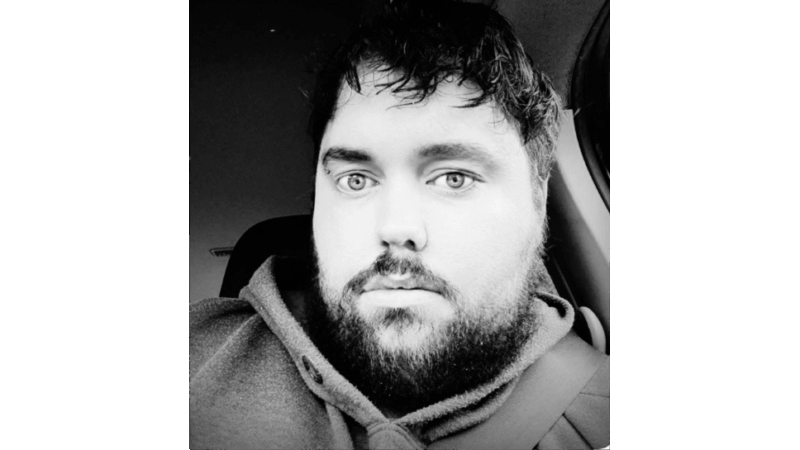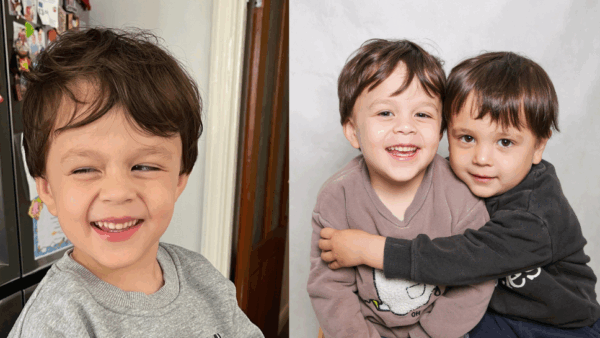Thanks for joining us for the very first Ullrich Awareness Day!
My life with Ullrich congenital muscular dystrophy
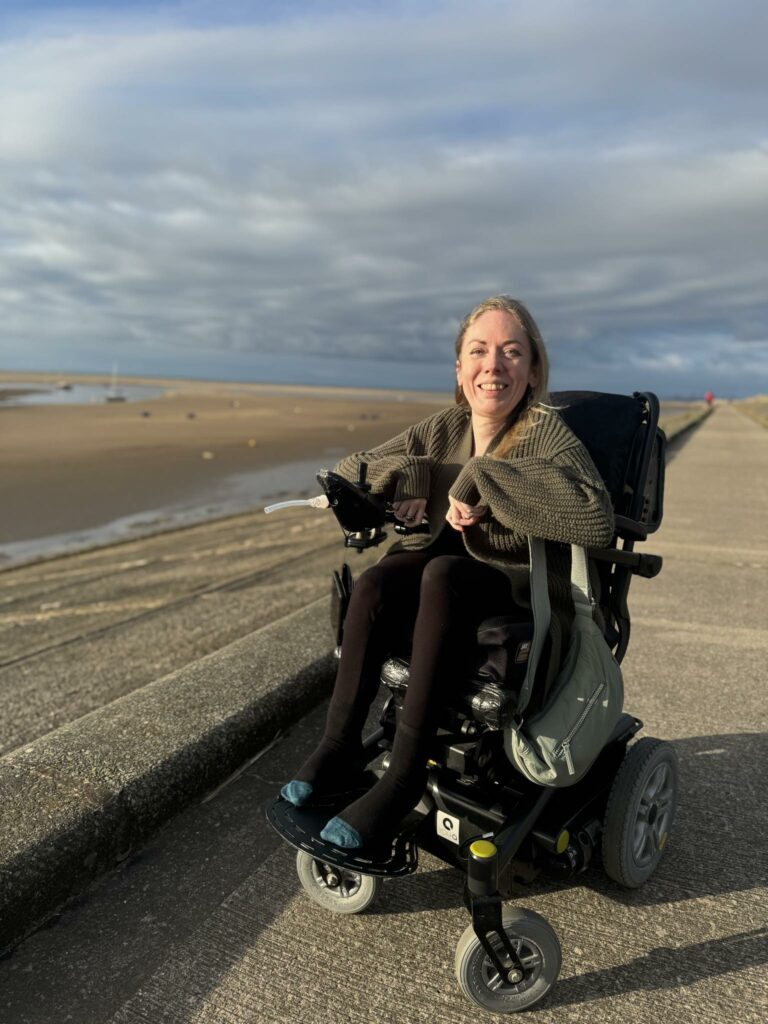
It’s a particularly rare form of muscular dystrophy, which you may have not heard of – until now. This awareness day means a great deal to me since I was born with Ullrich congenital muscular dystrophy 35 years ago.
Ullrich is progressive, which means symptoms become worse over time.
Growing up with Ullrich
For me, the first signs were dislocated hips, so-called floppiness, and delayed development. I lost the ability to walk, rather abruptly, at age 10, though I could never climb steps or stairs, and needed leg splints until becoming non-ambulant. I wasn’t sad to say goodbye to those splints! Even if it meant having to sit on my bum forevermore.
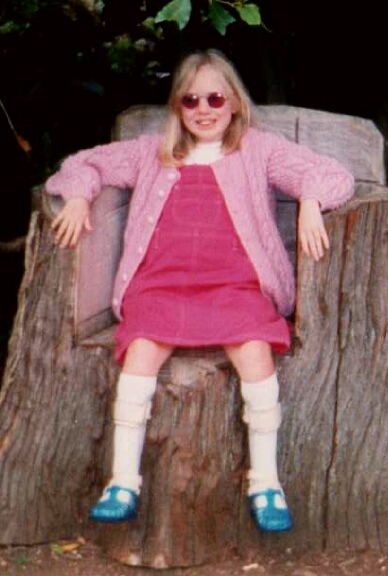
School, particularly high school, was tough. I used a manual wheelchair and relied on others to push me. Racing around the playground with my friends at the handlebars was fun. But other times, I was left quite literally stranded, unable to self-propel.
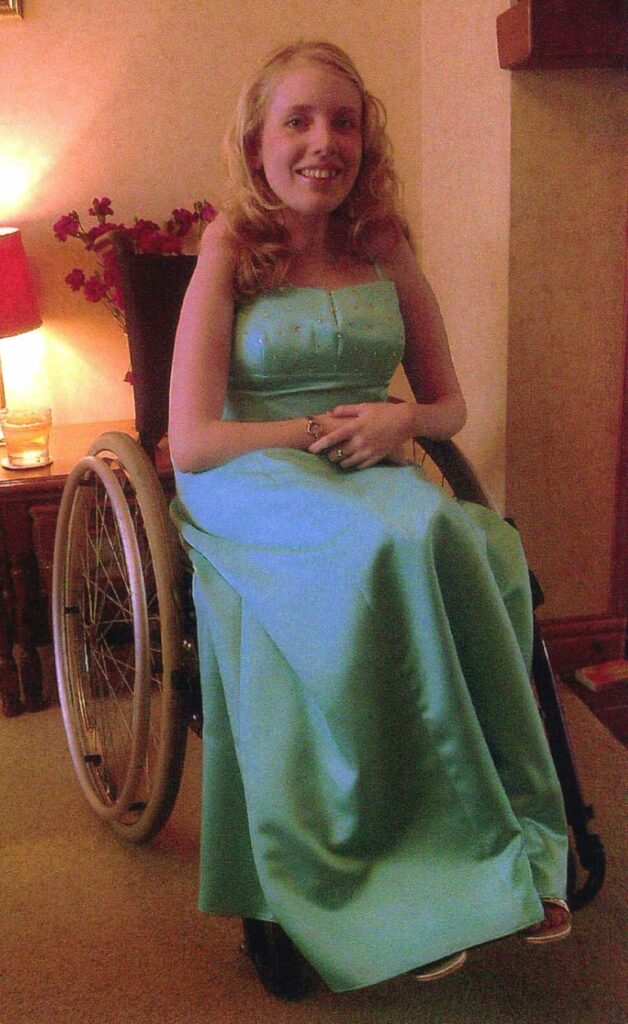
P.E. lessons were traded for physiotherapy, and much time was spent absent due to ill health, hospital admissions, and operations, for example, to release the tendons in my feet.
Scoliosis and spinal surgery
Ullrich affects respiratory function, resulting in frequent chest infections and, for me, numerous bouts of pneumonia. Scoliosis, curvature of the spine, makes all these issues worse since the lungs and other organs are squashed. Many decide to have corrective surgery, which I was offered at the age of nine.
Bear in mind, it was 1998 and things were very different back then. The surgery itself was not at all like it is today, and the recovery time much longer and riskier. With little to no information or guidance, I ultimately decided not to go ahead with the spinal fusion – yes, even at that age, it was my choice.
Given the opportunity to talk to older individuals who’d gone through the surgery – at that time, there was no social media, and I didn’t know anyone with my disability – perhaps my decision would have been different. With the insight of exactly how my condition would progress and the impact on my adult life, it’s likely I would have put myself through the relatively short-term trauma for the long-term benefit.
Scoliosis – in my case, an ‘S’ shaped curvature – affects posture, balance, respiratory function and causes pain, discomfort, pressure sores and asymmetry of the torso. It is a huge task to find clothes that fit, and so I wear baggy tops that hide my body. The compression caused by scoliosis also causes me to become full, bloated and breathless after very small quantities of food.
The life I have created for myself
For me, the biggest battles are, and always were, with my health and respiratory decline, and managing care – I’m sure many of you can empathise with the latter!
I cannot weight-bear, am unable to independently transfer, and I need help with, well, most things, including personal care. Thanks to funding provided by Direct Payments, I’ve been recruiting PAs for the last 18 years. While the ongoing process can be stressful, it has, without doubt, afforded me a much greater quality of life.
Despite the many challenges I’ve faced throughout my 35 years with Ullrich muscular dystrophy, (I won’t pretend it’s been easy), I attended mainstream school, moved on to Sixth Form College where I achieved 3 A-Levels (AAB), and later studied for a BA hons degree in Art and English.
I learnt to drive a car from my powered wheelchair, became an employer, a writer and blogger, and, most excitingly, I recently got engaged!
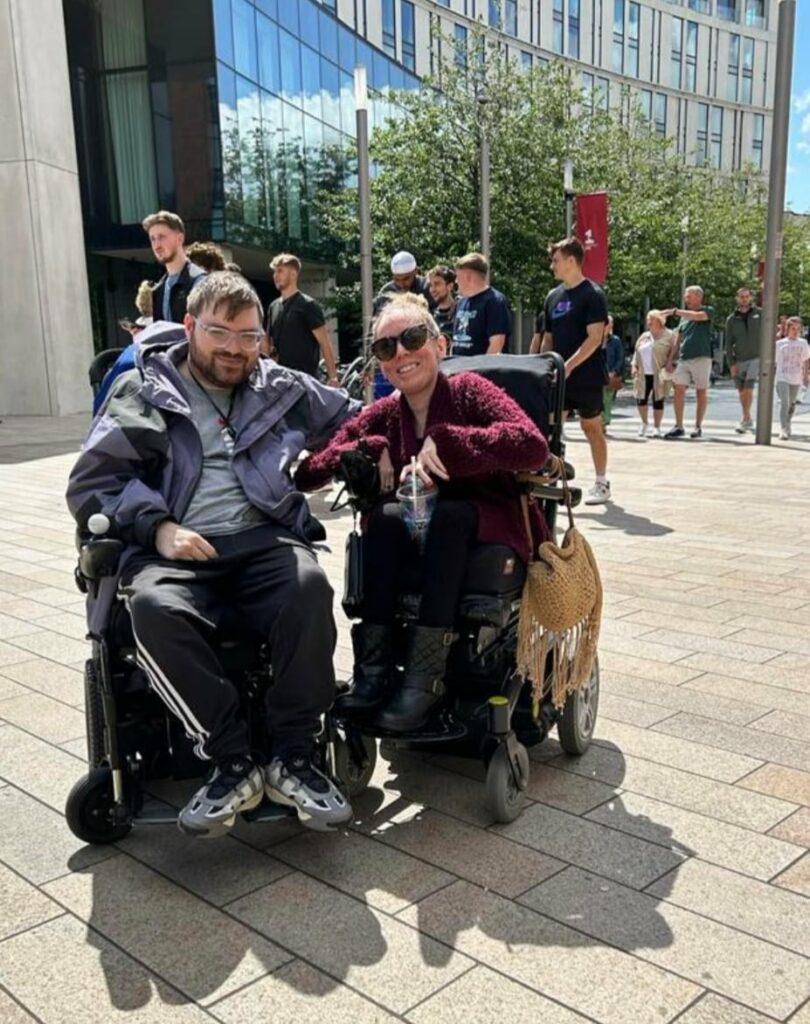
My incredible fiancé and I continue to find ourselves navigating the never-ending obstacles relating to life with a disability. Of course, we want nothing more than to live together, as independently as possible, but the social housing crisis and dire lack of accessible properties is preventing us from doing so. Frustratingly, the overwhelming attitude we’re faced with is that if we, as a disabled people, are ‘suitably housed’ – there’s no cause for us to be rehoused or to relocate. Even now, in 2024, we lack the same equality and freedom of choice as able-bodied people!
I’m well aware that our options are limited and that reaching our goals, as a couple, may take years. I’m also not ignorant of the fact that my condition, which is life-limiting, will continue to progress, resulting in the further loss of ability. Nevertheless, we battle on, as we always have. Again, this is not a lifestyle choice, but a necessity when living with Ullrich muscular dystrophy.
Carrie Aimes
